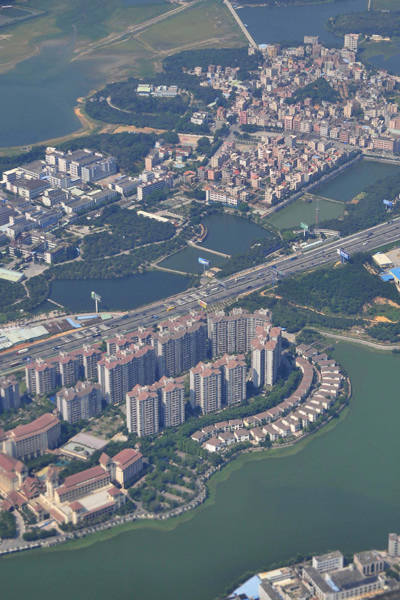|
 |
|
TO IMPROVE THE MARKET: A real estate development zone in Shenzhen, Guangdong Province. In 2012 the Chinese Government will continue strict regulation measures for the real estate industry (DENG KEYI) |
The runaway freight train that was China's real estate market is showing signs of slowing. But this has not eased China's top policymakers. At a State Council meeting held on January 31, Premier Wen Jiabao reiterated the government's stance of consolidating measures to curb property speculation and bring about a "reasonable" correction in housing prices.
Since this meeting was held to discuss the government work report to be submitted to this year's session of the National People's Congress in March, Wen's remarks also disclosed the Chinese Government's orientation in the real estate industry in 2012—control will continue to tighten and will not be eased for some time.
Two years ago, the Chinese real estate market was in a fever, and the fast-growing housing prices caused discontent among the public. Since April 2010 the Chinese Government has launched a new round of control measures against the real estate market, featuring curbing speculation, restricting mortgage loans and accelerating construction of affordable homes.
These policies finally achieved results. According to the 2011 loan distribution report released by the central bank on January 30, growth of real estate loan dropped. By the end of December 2011 the balance of loans granted by financial institutions to the real estate industry had totaled 10.73 trillion yuan ($1.7 trillion), up 13.9 percent year on year, which was 13.5 percentage points lower than a year earlier. In the meantime, the proportion of loans for developing affordable homes increased. By the end of December 2011, the balance of loans for developing affordable homes stood at 349.9 billion yuan ($55.42 billion), an increase of 175.1 billion yuan ($27.57 billion) for the year, accounting for 50.1 percent of total real estate loans, which was 31.7 percentage points higher than that in the outset of 2011.
In January 2012, the average home price in 100 Chinese cities was 0.18 percent lower from a month ago at 8,793 yuan ($1,393.5) per square meter, dropping for a fifth month on the monthly basis, according to a report released by the China Index Academy on February 1.
The controls have hurt real estate developers, causing some to close. According to a document from the Beijing Municipal Commission of Housing and Urban-Rural Development, in 2011 a total of 473 real estate developers did not extend their qualification certificates after expiration or nullified their business certificates, which meant all these real estate developers disappeared from Beijing's real estate market.
At present, the number of real estate developers in Beijing with valid qualifications is about 3,000. According to figures from the Beijing Municipal Bureau of Land and Resources, in recent years less than 200 pieces of land were supplied to developers on average each year, and it is estimated that supplies will likely diminish in the future. In the next five years, there may be only 1,000 property developers who can obtain land, which means the other 2,000 will have no land to develop.
Other cities face similar problems. According to figures from the Housing Security and Management Bureau of Wuhan, capital of Hubei Province, by the end of October 2011, there had been 1,375 registered real estate development companies in the city, a decline of 200 compared with the same period in 2010.
The Ministry of Housing and Urban-Rural Development (MOHURD) is constructing the national housing information database. Individual housing information in 40 key cities such as Beijing, Shanghai and Hangzhou, capital of Zhejiang Province, will be entered the MOHURD database by the end of June. After that, housing information in the 40 key cities will be available for inquiry and home purchases in the above cities will be under uniform monitoring.
This means speculators will be subject to more strict restrictions. Zhang Dong, Director of the Institute of Real Estate of Zhongnan University of Economics and Law, said in his blog that with a national database of individual housing information, the supervisory authorities will be able to master more exact and timely commercial house planning and data of market supplies and demand, implement effective monitoring and formulate effective control measures.
| 